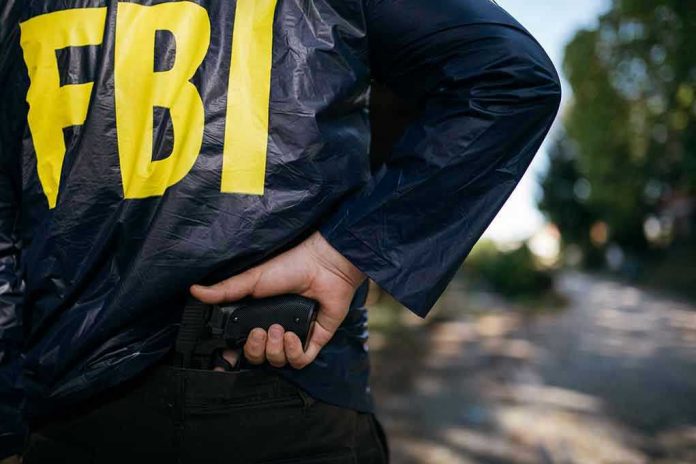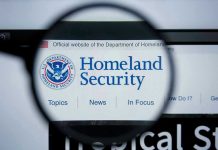
The FBI’s recent arrest of a California man accused of sending money to ISIS—and the discovery of an apparent bomb in his bedroom—exposes the persistent threat of homegrown terrorism and the crucial role of law enforcement in defending American lives and values.
Story Snapshot
- A lawful U.S. resident in Long Beach, California, was arrested for allegedly sending funds to ISIS fighters overseas.
- The FBI recovered what appeared to be a bomb from the suspect’s bedroom during his arrest.
- Authorities say the man pledged allegiance to ISIS, communicated directly with self-identified terrorists, and sent $1,615 over five months.
- The arrest highlights ongoing concerns about online radicalization and the importance of strong counterterrorism enforcement.
FBI Intercepts Suspect Allegedly Supporting ISIS from California Home
Federal agents arrested Mark Lorenzo Villanueva, a 28-year-old lawful permanent resident originally from the Philippines, in Long Beach, California, on August 1, 2025. Prosecutors allege he attempted to provide material support to ISIS by wiring twelve payments totaling $1,615 to intermediaries overseas between February and July 2025. According to a federal affidavit, Villanueva used social media to communicate with two individuals who claimed to be ISIS fighters, pledged allegiance to the terrorist group, and expressed a desire to join them abroad. During a search of his home, FBI agents seized what appeared to be a bomb, intensifying concerns about the possibility of an imminent domestic attack. These details were confirmed by the U.S. Attorney’s Office for the Central District of California and multiple major news outlets.
FBI arrests man in California for allegedly attempting to provide financial support to ISIS; explosives seized https://t.co/XV6985ygv4
— Fox News (@FoxNews) August 2, 2025
Officials say the arrest and subsequent search underscore the reality that threats can originate from within U.S. borders and can escalate from financial support to plans for violence. U.S. Attorney Bill Essayli stated, “Supporting a terrorist group, whether at home or abroad, is a serious risk to our national security. We will aggressively hunt down and prosecute anyone who provides support or comfort to our enemies.” Law enforcement sources credit the FBI’s Joint Terrorism Task Force for acting swiftly to intercept the suspect before further harm could occur.
Timeline of Radicalization and Law Enforcement Response
Villanueva’s alleged support for ISIS began in February 2025, when he first contacted the suspected fighters online and asked how his money could help the organization. Over the next five months, he sent financial transfers through Western Union, deliberately using intermediaries to obscure the funds’ destination. The investigation revealed direct online pledges of allegiance and statements of intent to fight for ISIS. The case fits a troubling pattern seen in recent years: lone actors in the U.S. being radicalized through encrypted messaging and social media, then providing tangible support—sometimes escalating to plotting acts of violence within the country.
On August 1, 2025, FBI agents executed an arrest warrant at Villanueva’s residence, recovering an apparent explosive device from his bedroom. Authorities immediately secured the area and began a broader examination of his digital communications and financial records. The following day, federal officials announced the charges and emphasized the ongoing investigation into any potential accomplices or broader networks.
National Security and the Ongoing Challenge of Domestic Radicalization
Law enforcement officials point to this case as a clear example of the challenges posed by online radicalization and the ability of foreign terrorist organizations to recruit and mobilize supporters within the United States. The FBI and Department of Justice stress that ongoing vigilance, robust intelligence-sharing, and aggressive prosecution are essential to deter future threats. Acting FBI Assistant Director Patrick Grandy praised the Joint Terrorism Task Force for “preventing further support and spreading of ISIS ideology.”
Experts warn that as social media and encrypted apps make it easier for bad actors to operate in the shadows, law enforcement must remain equipped with both the legal tools and resources to detect and disrupt terrorist support networks before they can act. This is a critical reminder of why strong counterterrorism laws, border enforcement, and cooperation between agencies are non-negotiable priorities for keeping Americans safe. Some commentators have raised concerns about government overreach or profiling, but the facts of this case—direct online pledges to ISIS, verified financial transfers, and the discovery of an explosive device—demonstrate the necessity of proactive policing in the face of real and present dangers. The balance between civil liberties and national security remains a topic for debate, but as this case proves, there can be no compromise on protecting the American homeland.










